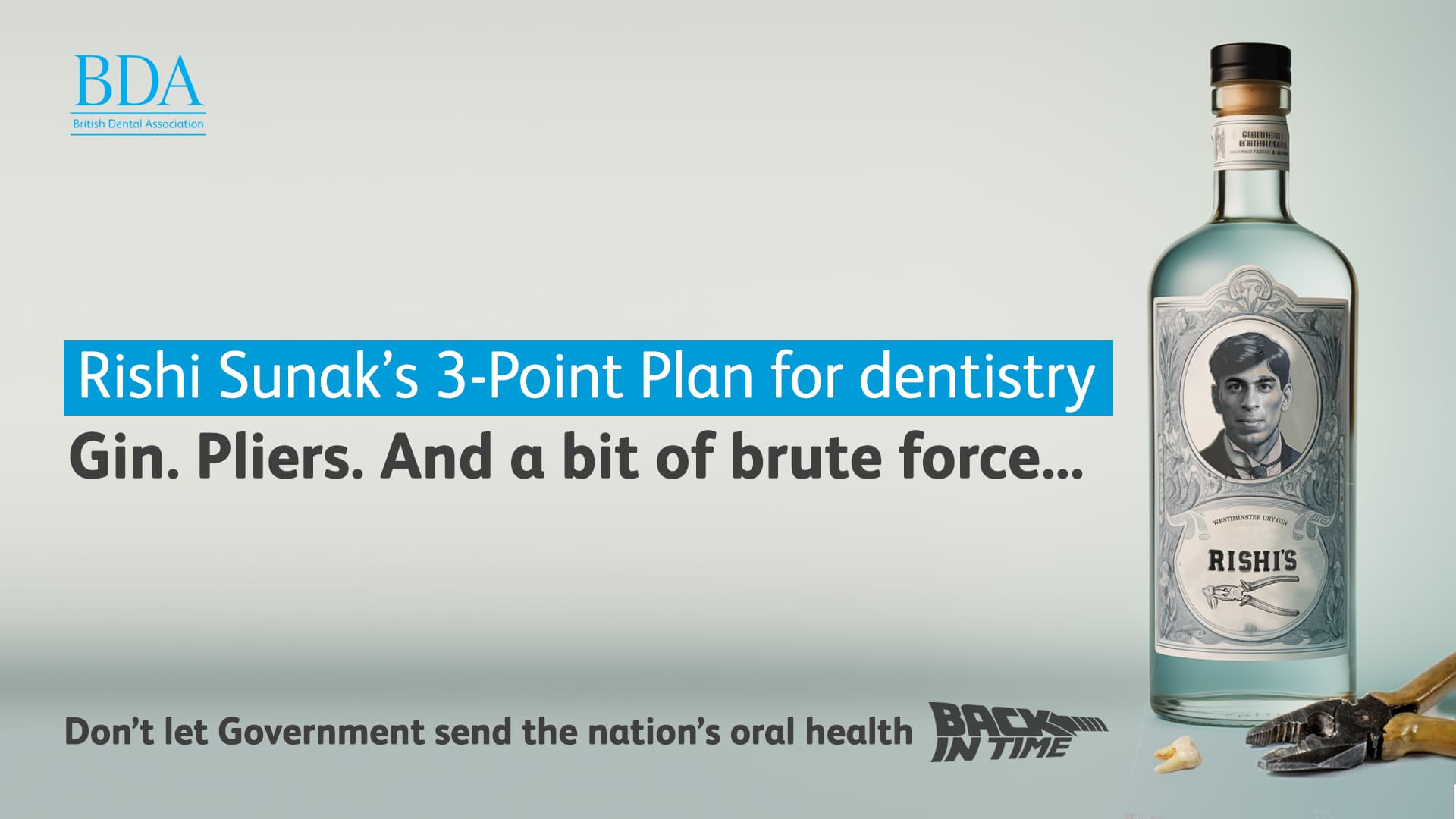

England’s dentists have no confidence in the new Recovery Plan, which the vast majority have dubbed incapable of meeting the Government’s stated goals, and which they say may actually reduce access for NHS patients.
A devastating national survey of dentists in England shows:
- Just 3% think the plan will result in their practice seeing more NHS patients. 43% believe the plan will actually lead to their practice seeing fewer NHS patients.
- Only 1% of respondents believe the plan is capable of meeting the government’s stated objective to provide NHS dental care to ‘all who need it’. A mere 3% say it will keep them providing NHS care long term.
- 4% believe it is ambitious enough to meet the scale of the current crisis – the same proportion who say the level of investment is sufficient to make NHS dentistry sustainable going forward.
- Only 41% of practices say they are operating at pre-COVID levels of capacity. 62% cite higher needs patients requiring more clinical time as a factor constraining their practice, reflecting the huge backlogs generated by ongoing access problems.
The BDA described the Government’s Recovery Plan as ‘unworthy of the title’, stressing that after an almost yearlong wait, it failed to offer the ambition or resources to bring the service back from the brink.
The BDA – who will give evidence to the House of Commons Health and Social Care Committee on Tuesday morning – stress that dentists have seen through the official spin that surrounded the plan’s launch. It is demanding that Government disclose the modelling underpinning the claim the plan will generate 2.5 million new appointments, given that no policies within it are capable of generating new capacity or attracting dentists back to the NHS.
The professional body understands that not a penny of new investment is included in the £200m funding the plan, with all costs covered from less than half the estimated £450m underspend taken from practices struggling to hit their punitive NHS targets. Taken together with recent hikes in patient charges, the BDA say this represents further cuts to a service paired to the bone – with higher charge levels being utilised as a substitute for state investment, as they hit millions of families on modest incomes.
There is a realistic prospect the plan will actually reduce access. A higher minimum Unit of Dental Activity (UDA) value is being paid for by dentists being allowed to deliver fewer UDAs overall. The New Patient Premium will also be paid out of existing contract values – meaning for a practice working at full capacity seeing more new patients will by definition translate into fewer NHS patients they can see overall.
The BDA have stressed the Health Committee set out an instruction manual to save the service in its report last year. The first step – a decisive break from the failed NHS dental contract, and a move to a person-centred, prevention-focused model of care – has been rejected by Government, following what the BDA believes is Treasury pressure.
Over 200,000 people have signed a joint BDA, 38 Degrees and Daily Mirror petition calling on the PM to deliver real change in dentistry. In his first run for the leadership, Rishi Sunak pledged to ‘restore’ NHS dentistry. Dentist leaders stress nothing in the plan is capable of delivering on that promise, and are taking the message in adverts to Whitehall and online, slamming horrific scenes of DIY dentistry and cases of life-threatening dental sepsis that have no place in a wealthy 21st century nation.
Shawn Charlwood, Chair of the British Dental Association’s General Dental Practice Committee, who will be giving oral evidence to the House of Commons Health and Social Care Committee said:
“Checkups are hard to come by, but it will prove much harder for Ministers to find a dentist who backs their outlandish claims.
“This profession has seen through the spin. Empty sound bites won’t stop queues outside practices, and dodgy statistics won’t call time on ‘DIY’ dentistry.
“Bringing dentistry back into the 21st century requires real commitment, which is frankly in short supply.
